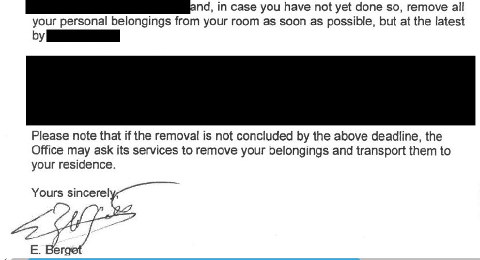

THE EPO's management had bet the farm on UPC and it wasn't just unethical and reckless; it was terrible for everyone.
While reference has been made to establihshed case law of the EPO, it is clear from numerous decisions that the EPO itself considers that it is only obliged to be bound by "G" decisions. In many decisions it has been pointed out, seemingly mainly to UK authorised representatives, that the EPO relies on a legal code (the EPC) and, unlike Anglo-Saxon legal practice, is not necessarily bound by precedents because non-"G" decisions are not "case law" as per UK practice.
See for example T 0154/04: para 2.
2. .... the legal system of the European Patent Convention gives room for evolution of the jurisprudence (which is thus not "case law" in the strict Anglo-Saxon meaning of the term) and leaves it to the discretion of the boards whether to give reasons in any decision deviating from other decisions or to refer a point of law to the Enlarged Board.
G 0003/08 : reasons:
7.3.1 Development of the law is an essential aspect of its application, .... That is especially true of Anglo-Saxon law, where a decision on an individual case has far greater implications as a precedent than judgments in continental civil law.
T0910/06
2.8 To the extent that the absence in the decision under appeal of any reference to the "established case law" ... is seen in itself by the appellant as a "substantial procedural violation" it must be recalled that unlike some Anglo-Saxon legal systems which are precedent driven, the instances of the European Patent Organisation work within a codified system of law, i.e. the European Patent Convention and its implementing regulations, and are constrained by case law only in the case of decisions handed down by the Enlarged Board of Appeal.
epo.org link)
This year's meeting of the US Bar-EPO Liaison Council, a forum to facilitate informal exchanges with US applicants, took place at the EPO's Munich headquarters on 15 November. Consisting of representatives of IP special-interest groups and IP sections of State Bar associations, the Council provides the EPO and US Bar representatives with an excellent opportunity to discuss contemporary issues in the patent system and to address questions of mutual interest. For the EPO, it is also a valuable opportunity to present recent developments at the EPO and gather feedback from US users, currently the EPO's largest origin of patent applications.
[...]
Feedback from US Bar members revealed that the meeting had helped them deepen their understanding of European patent practice and they welcomed the possibility of another such meeting in 2018.
I don’t see how the EPO is going to find recruits under that new contract form.
The EPO only recruits examiners fresh from the University. They don’t want anything else and the pay for people with experience is not attractive anyway, especially in Munich where the industry is also recruiting engineers and scientists. But for someone fresh from the University, the first job will determine the rest of your career. An employer will typically look at your past 5 years experience and not at your diplomas any more. So if you start your career with patents, it will be very difficult to do anything else afterwards.
But in patents, there are only two jobs: patent examiner and patent attorney. The EPO is basically the only provider of patent examiner jobs in Europe, so if they fire you after 5 years, that road is closed. Patent attorneys cannot absorb a significant number of recruits either. They never did, they are not going to change their policy when the office starts laying off people in significant numbers after 5 years. So, basically, after 5 years you are out of a job with no perspective.
Besides I don’t understand the need for the new policy. The EPO can already fire people at will, they even did so for a judge and some staff representatives.